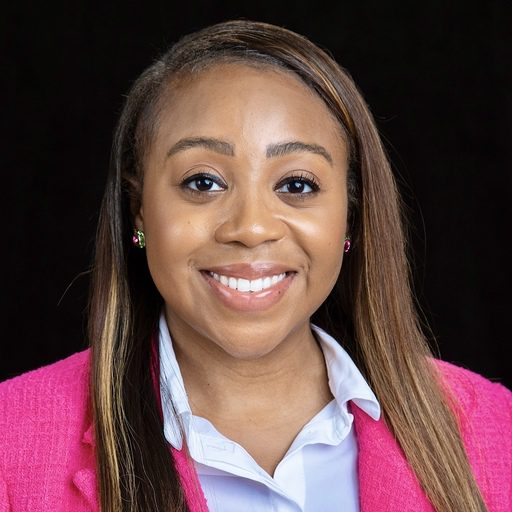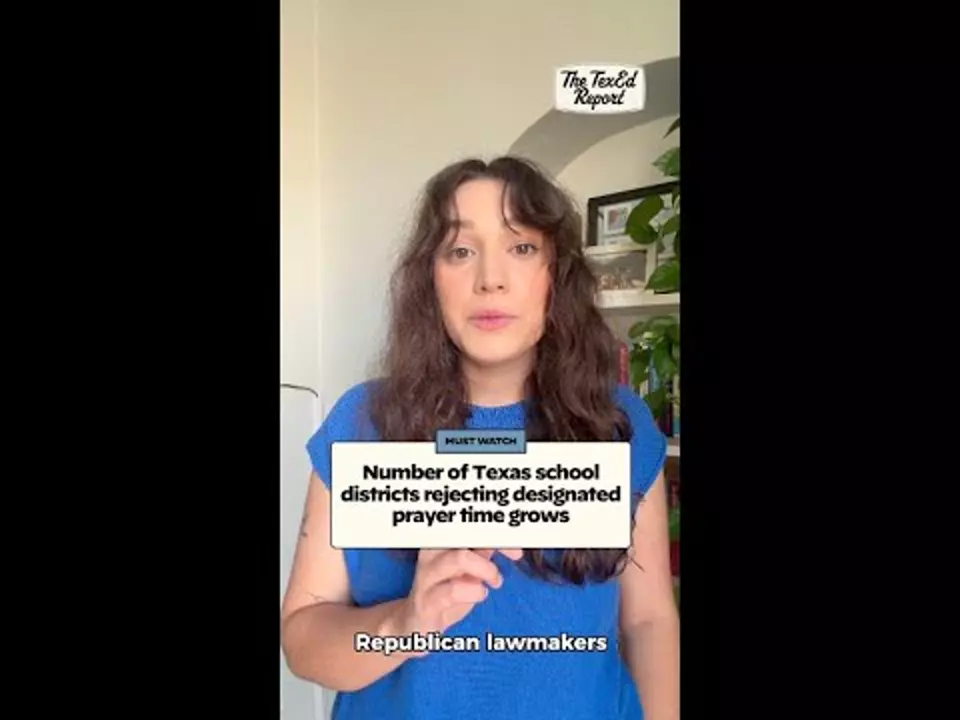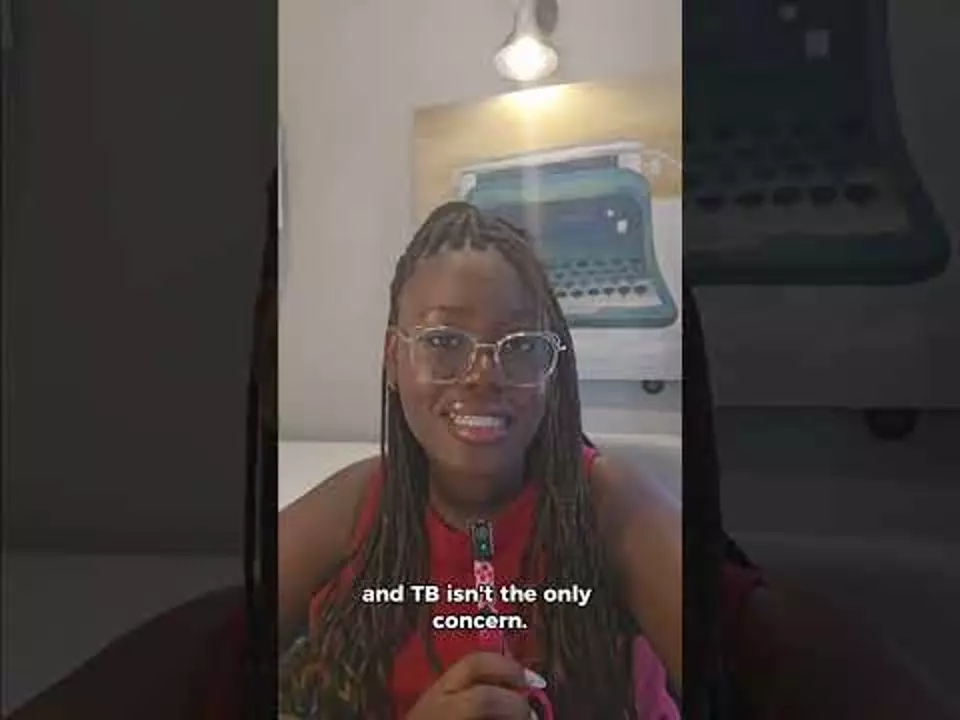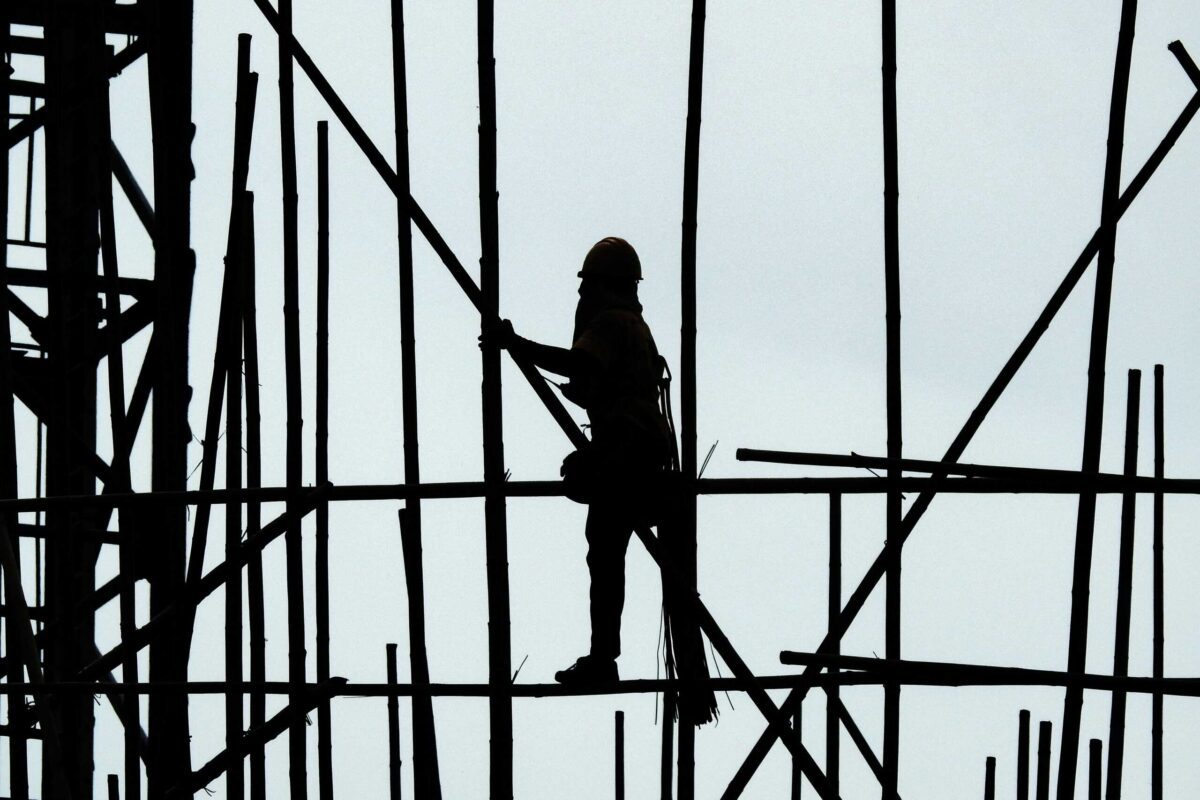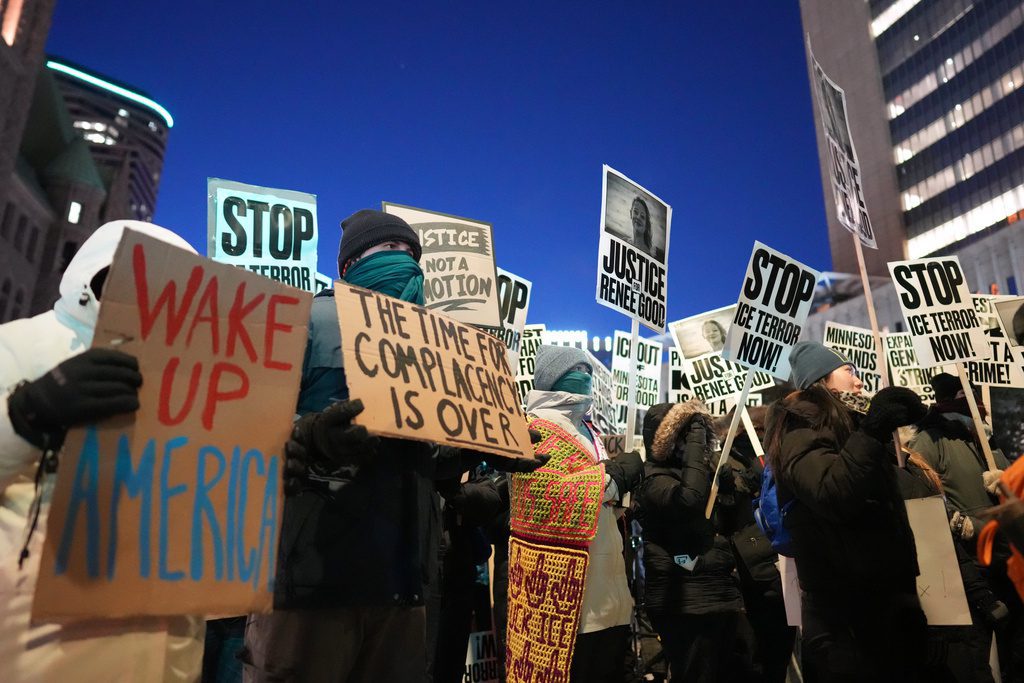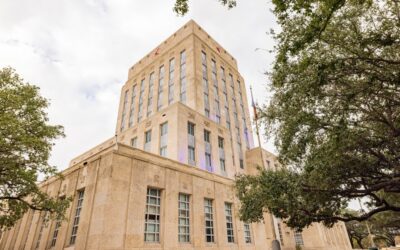
Vagney Hampshire standing in front of the entrance to the Expo Hall at AfroTech. | Photo by Vagney Hampshire
“AI is coming after our jobs, but there are other facets that are coming after our lives, our resilience, our fortitude, our imagination, our existence, and they’re not shy about it.”
Those words from Stacey Abrams opened one of the most powerful conversations I heard at AfroTech in Houston and set the tone for what this gathering represents. Her warning wasn’t just about fear — it was about responsibility. Throughout the conference, speakers and attendees discussed how AI can also be used to solve problems that have long gone unaddressed: improving healthcare access, expanding financial inclusion, and using data to close gaps in education and opportunity. The message was clear: the future of technology depends on whose values guide its design and whose communities it serves.
AfroTech, the nation’s largest conference for Black tech innovators, entrepreneurs, and creatives, celebrated its ninth year in Houston, drawing more than 40,000 attendees. Inside the George R. Brown Convention Center, the energy was electric. Attendees moved between sessions on artificial intelligence, venture capital, leadership, and culture, all with a shared purpose: to build and to belong. AfroTech isn’t just a professional conference. It’s a celebration of Black innovation and a space that redefines what access, opportunity, and representation look like in the tech world.
During her featured session, Democracy in the World of AI, Abrams explored how technology is reshaping not only the economy but democracy itself. She reminded us that the values we put into artificial intelligence will determine the kind of society we build.
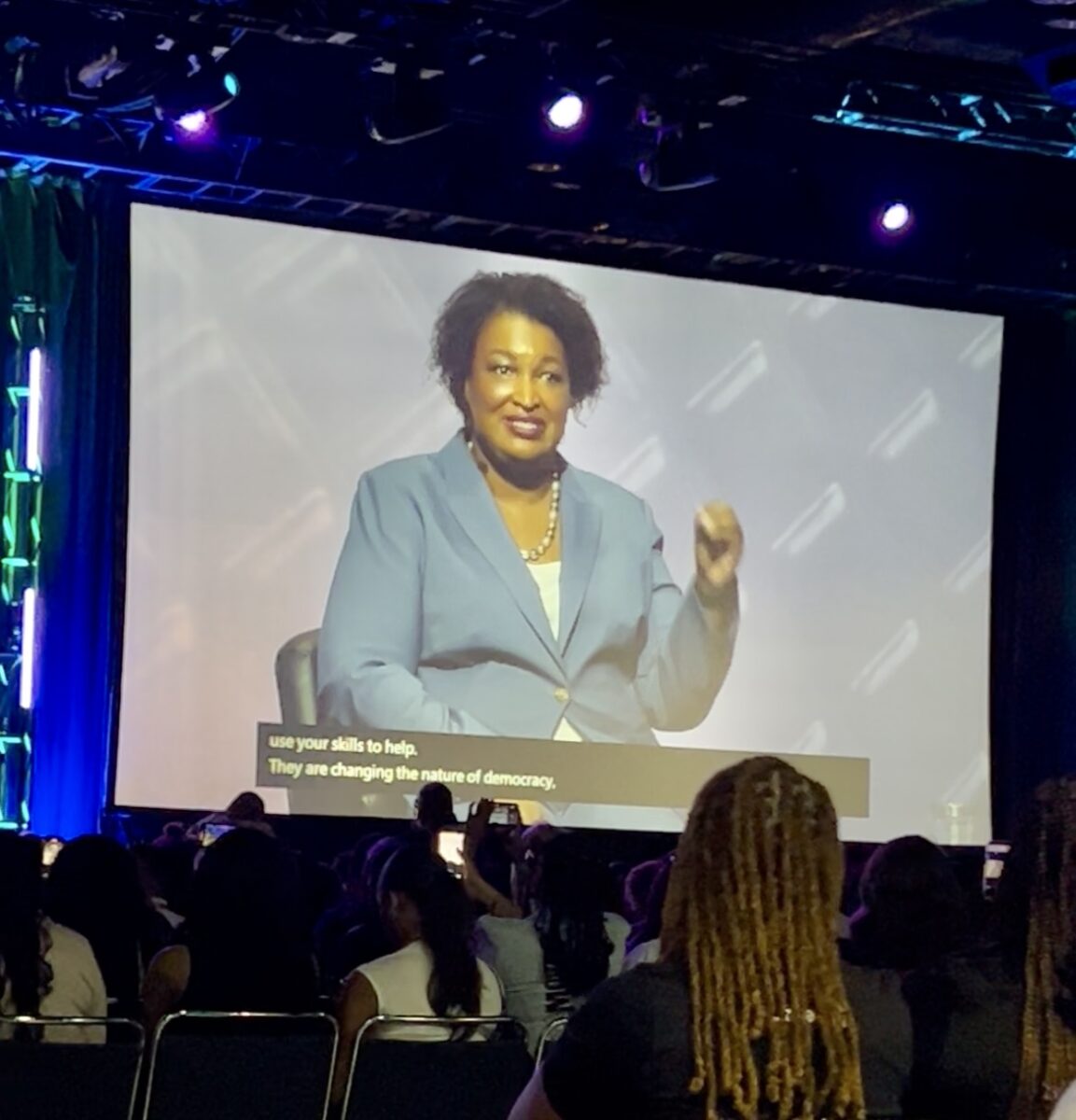
Stacey Abrams speaking at the AfroTech Conference. | Photo by Vagney Hampshire
“You don’t attach something as assiduously as our communities have been attacked unless there’s something there that you want or you’re afraid of,” she said. “I think they’re afraid of our resilience. I think they are afraid of our creativity. I think they’re afraid of our innovation. But often fear is envy.”
Her words hit differently in Texas, where tech investment is booming but equity still lags. Texas has become one of the fastest-growing tech hubs in the nation, with major companies like Tesla, Oracle, and Apple expanding their presence and startups increasingly choosing cities like Austin, Dallas, and Houston to set up shop. Innovation without inclusion is just another form of inequality. As the state continues to attract major tech companies and develop innovation corridors, policymakers must ask who has access to those opportunities. Do Black founders receive the same funding? Do students in underserved districts have access to STEM education? Do communities of color have affordable broadband and pathways into the digital economy?
Abrams’ call to action was clear: “The more we activate and aggregate what we do the more we bring people into community with us so they really do have something to be afraid of.” That kind of activation isn’t just about coding or entrepreneurship; it is about civic power. It is about using technology to expand access, representation, and democracy itself.
AfroTech showed what’s possible when Black innovation takes center stage. But the future of equity in tech depends on what happens after the panels end. State and local leaders must treat access to technology, education, and capital as fundamental to democracy, not optional.
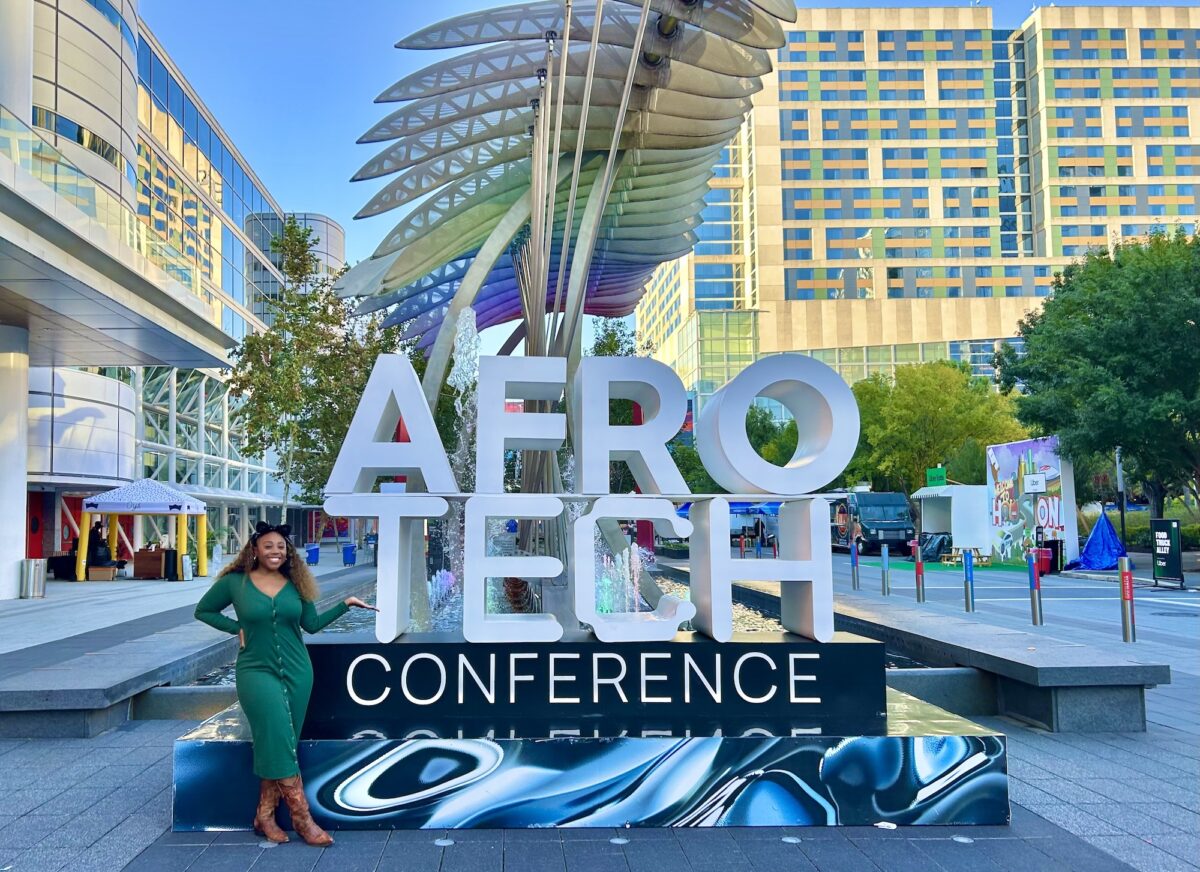
One of the most popular AfroTech signs in front of the George R. Brown Convention Center in Houston. | Photo by Vagney Hampshire
As Stacey Abrams said, “Democracy isn’t this esoteric idea. I don’t care about voting rights because I like casting a ballot; I care about voting rights because it’s power. And if we all decide that we are going to do something within our power to increase the power of someone else, to increase their access so that they know democracy can deliver, we not just save a nation, we can demand a nation we deserve and that’s the work that gives me the most hope.”
That’s the spirit of AfroTech: using innovation and community to expand power, access, and imagination for everyone.
Vagney Hampshire is a journalist and social media strategist with a journalism degree from The University of Texas. She has earned leadership and public value certifications from Harvard and Yale University, and currently leads social media strategy for the COURIER Texas Newsroom. Her reporting has also appeared in the Houston Chronicle and AP News.




